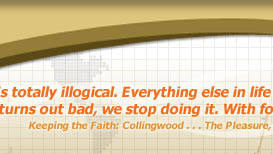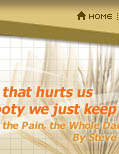John Adams
by David McCullough
Overview
From the Publisher
In this powerful, epic biography, David McCullough unfolds the adventurous life-journey of John Adams, the brilliant, fiercely independent, often irascible, always honest Yankee patriot -- "the colossus of independence," as Thomas Jefferson called him -- who spared nothing in his zeal for the American Revolution; who rose to become the second President of the United States and saved the country from blundering into an unnecessary war; who was learned beyond all but a few and regarded by some as "out of his senses"; and whose marriage to the wise and valiant Abigail Adams is one of the moving love stories in American history.
My thoughts
I recently had the privilege of attending a lecture and book signing by famed Pulitzer Prize winning author, David McCullough. I can't begin to tell you how honored I am to have attended the sell-out event in Kansas City. Mr. McCullough is a renowned historian and scholar, and speaks with ease about events in the history of the United States.
OK, let's be honest about this...I wasn't sure I'd like this book. As much as I admire the author, it's no secret that he's forgotten more history than I'll ever know, and I was afraid this book would be over my head. I was SO wrong! I love this book! It is a bit slow going for me because I have a lot to process as I read -- I know so little about world history. But it is amazing to watch history unfold by way of an expert storyteller, David McCullough. I am totally captivated by the storytelling in this book, and every so often I have that Aha! moment when huge pieces of history fall right into place!
John Adams and Benjamin Franklin spent a lot of time together, a fact I didn't know. I also didn't know that the original 13 colonies had a population of nearly 2.5 million in 1976. I found that shocking, along with the fact that George Washington and Thomas Jefferson each had about 200 slaves. Think about it. That's a corporation they had to manage on top of whatever else they were doing. I don't know where I was when they taught us that in history class. Another fact I find astonishing is that the US planned to approach Holland for a loan to fight the war, and we wanted $10 million dollars. TEN MILLION DOLLARS! In the late 1770's! I don't know the equivalent of that in today's dollars but it seems quite extravagant for back then! And Ben Franklin -- he surely was one of the first abusers of tax money! The man led a lavish lifestyle of eating, drinking and throwing parties! John Adams said, "Ben! Mate! This is hard earned money you're throwing around," to which Ben replied, "We have no time to talk finance, my dear John. We've got parties to attend." (I'm not sure if that's word for word...!) :-)
In any case, this is a delightful book and though I'm only 1/3 way through as I write, I'm highly recommending it. I'm also hoping that John and Abigail's long separation will finally end. I can't wait till John becomes President and Abigail becomes First Lady!
My Book Notes
Pg 20 - Adams was reluctant to travel on the Sabbath.
Pg 35 - The only time Deacon John was known to have sold land was when he sold ten acres to send John Adams to college.
Page 104 - Remember all men would be tyrants if they could. (Abigail puts it to John in a delightful manner!)
Page 106 - Abigail writes: I want to say many things I must omit. It is not fit to wake the soul by tender strokes of art, or to ruminate upon happiness we might enjoy, lest absences become intolerable. To which John replies: Is there no way for two friendly souls to converse together, although the bodies are 400 miles off. Yes, by letter. But I want a better communication. I want to hear you think, or to see your thoughts. The conclusion of your letter makes my heart throb more than a cannonade would.
Page 131 - 2,500,000 population in the 13 colonies in 1776; one in 5 were slaves. Virginia alone had more than 200,000 slaves. Thomas Jefferson and George Washington each had approximately 200 slaves.
Page 198 - Kickbacks have begun! See passage below!
Page 236 - "I must study politics and war that my sons my have liberty to study mathematics and philosophy. My sons ought to study mathematics and philosophy, geography, natural history, naval architecture, navigation, commerce and agriculture in order to give their children a right to study paintings, poetry, music, architecture, statuary, tapestry and porcelain.
Page 567 - "Subjected to some of the most malicious attacks ever endured by a president, beset by personal disloyalty and political betrayal, suffering the loss of his mother, the near death of his wife, the death of a son, tormented by physical ailments, he had more than weathered the storm. His bedrock integrity, his spirit of independence, his devotion to country, his marriage, his humor, and a great underlying love of life were all still very much intact."
Page 639 - "No man who ever held the office of President would congratulate a friend on obtaining that."
Favorite Passage
Adams had come to believe that [John] Dickinson's real struggle was with his mother and his wife, both devout Quakers who bedeviled him with their pacifist views. "If I had such a mother and such a wife," Adams would reflect years later, recalling Dickinson's predicament, "I believe I should have shot myself."
Franklin acknowledged that frugality was a virtue he never acquired. As a wealthy man, he had no personal worries about money, and for all his supposed simplicity, he loved his pleasures and ease, as Adams noted. He rode in an elegant carriage, entertained handsomely. Adams worried about not only the cost but the appropriateness of such extravagance. He imagined the rent for their accommodations at the Hotel de Valentinois to be exorbitant. When Franklin informed him that the Comte de Chaumont was charging nothing, that they were living there at no cost, Adams worried that that, too, was inappropriate, since, as everyone knew, Chaumont was one of the largest contractors furnishing supplies for the American Army.







